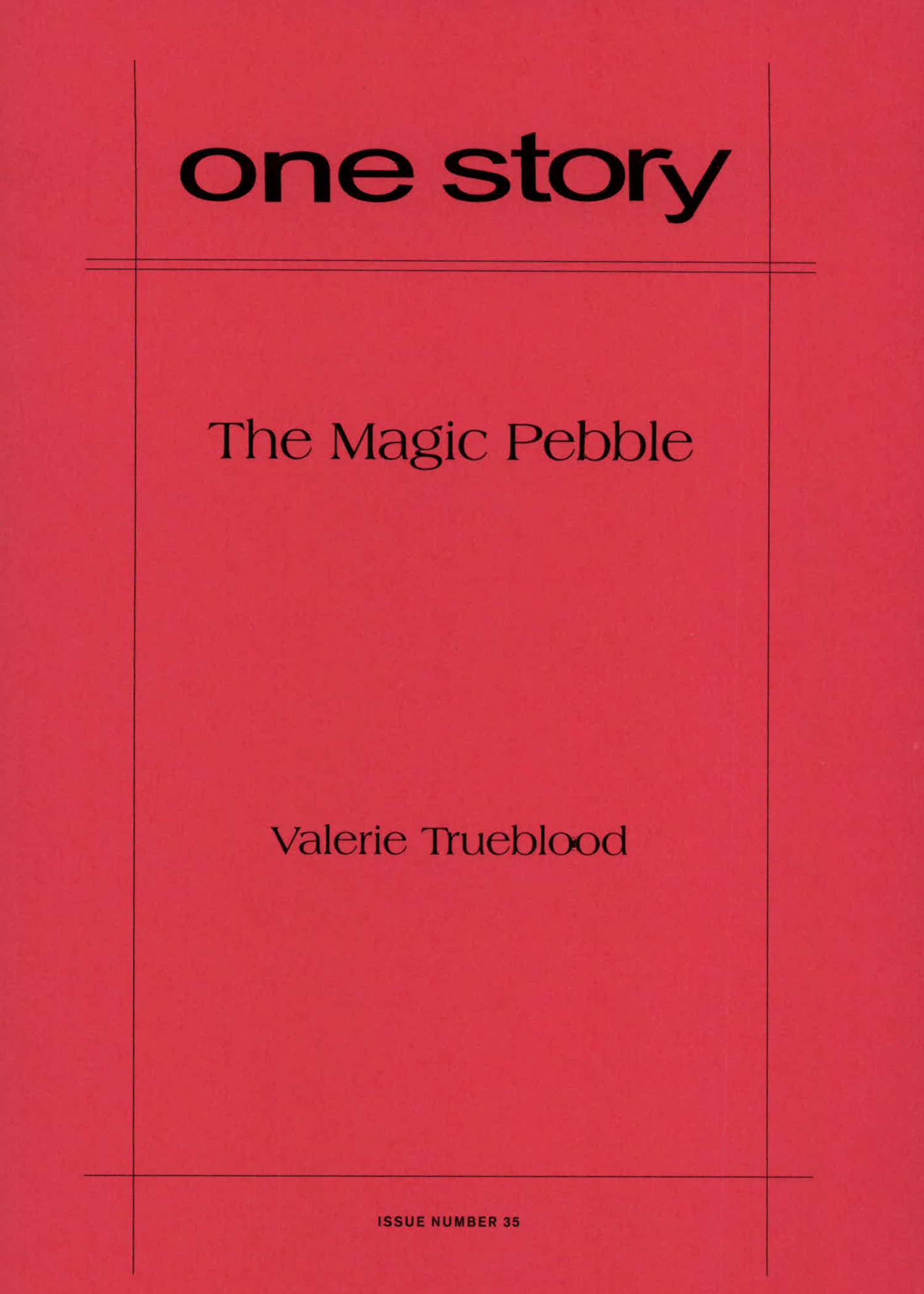
The Magic Pebble
$2.50
29 in stock
Excerpt
The flight to Lourdes is open to the whole archdiocese. Huge widebody, full. I am in the middle of coach, in a row of five, in the center seat.
All right, I’ll make the best of it. I have my little Sony, I’ll turn it on when they say we can and talk to the two people wedging me in, and that will be one segment of the program: me, the dressed-up old fellow on my left, and the woman on my right, who seemed at first to be blind. She is not blind but she has a nun in charge of her, stuffing her bag into the overhead bin and getting the seatbelt out from under her. It appears many of the passengers are caretakers, quite a few of them probably nuns, though few others display this one’s headband scarf and suit of a vaguely official off-blue. When she sits down she lays her liver-spotted, wedding-ringed hand on the hand of the sick woman, who has closed her eyes. The nun acknowledges me with a direct but unconversational look. She has a broad pink face, heavily and dramatically wrinkled considering its resigned expression.
I have become aware of resignation in others. By the time you reach the third chemo, one of the things you notice is that the people around you accept death, your death.
Valerie Trueblood
Valerie Trueblood lives in Seattle. Her work appears occasionally in literary magazines and newspapers. For twenty years she has been a contributing editor of The American Poetry Review, and takes new pride in the connection because of their recent publication of Hayden Carruth’s “On Anarchy.” She has completed Search Party, a collection of stories, and Seven Loves, a novel in stories.
Q&A by Hannah Tinti
- HT: Where did the idea for this story come from?
- VT: A good friend died, leaving children. Not long after she died I took a trip to Lake Powell. The two things grew into each other and became a story. It was a shock to see the flooded canyons and grasp what had happened there because of a dam. Yet the place had held a sea, long ago. Geology is comforting when there has been a death.
- HT: Why did you choose Lourdes as the narrator’s destination? Have you ever been on a religious pilgrimage?
- VT: Lourdes is her destination because it’s a shrine, a place of miracles, and that’s what she is in need of. I’ve known energetic dying people who kept looking for the last possibility, and were not put off by its unlikelihood. Of course, she’s a nominal Catholic, and the early experience of hearing people speak quite familiarly of miracles—certain nuns have a way of doing this—never completely fades. No, I haven’t been on a religious pilgrimage, but the idea of pilgrimage is still alive; here in Seattle you can see it at the house where Kurt Cobain lived, or at the grave of Bruce Lee. And of course people will always go in hope and humility to Mecca, to Jerusalem, to Rome.
- HT: Why did you choose the radio as your narrator’s profession?
- VT: I love the radio. There’s nothing like a voice out of a radio reading to you in a dark room. So secret.
- HT: The augury is such a wonderful detail in this story. Where did you first learn about augurs? What do you think the narrator learns from her own experience with the birds at Lake Powell?
- VT: Augury, omens...all forms of foretelling interest me. What is going to happen? That’s our question, isn’t it, as fiction writers? And there have always been those who believe they can tell us. I like the strange forms this foretelling has taken over the ages. Here’s one: armomancy, or divination by the shoulders of beasts. What could that be? The birds in the narrator’s dream at Lake Powell are part of her imaginative life. She has been very immersed in birds! So they bring that comfort we sometimes find in incomprehensible dreams.
- HT: Why did you end “The Magic Pebble” with Rafe?
- VT: Rafe comes into the narrator’s thoughts at the end because on the plane she has been hearing the story of a child gone spectacularly bad, and Rafe embodies her fear for her own son: Rafe’s a child whose mother is gone, a child with a cruel stepmother, a desperate child.
- HT: How long did it take you to complete this story?
- VT: My stories are all long and they all seem to take a long time to write. They shrink and grow for years. I’m so happy you’re making a home in One Story for the long story. As Louise Bogan said, “I like the short story and the long short story. The novel, never. To hell with the novel.”
- HT: What is the best bit of advice about writing you have ever received?
- VT: I like Flannery O’Connor’s “There is a fine grain of stupidity required in the fiction writer.” But the best and hardest advice: John Berryman, “Dream Song 54”: “Write as short as you can, in order, of what matters.”
- HT: What are you working on now?
- VT: I’m finishing up two collections of stories, Search Party and Phantom Father. A third collection, a group of stories that resembles a fractured novel, is done. My new story is getting longer and longer.
